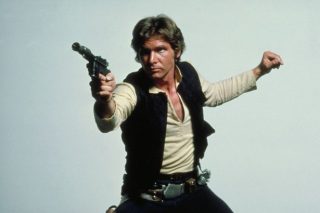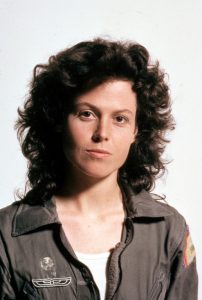
A Special Report by Agent Ellipsis
If 2016 has taught us anything, it’s that death catches up to us all in the end. Unfortunately, this includes our favorite iconic characters as well.
Hollywood has hit a crossroads that seems to be left out of modern cinema conversation: what do we do when an actor or actress that has established an iconic character wants to retire, or worse, passes away? The recent death of Carrie Fisher, famously known as Princess Leia in the Star Wars franchise, shows the weaknesses in our treatment of not only famous characters, but also in the millennial generation’s inability to create anything new.
The 70s-90s was irrefutably a golden era for original content that sticks to our bones even today: Star Wars, Alien, Indiana Jones, Blade Runner, Nightmare on Elm Street, and Terminator, just to name a few (and that’s not including animated works!). Perhaps the creators did not believe that their characters would stand the test of time, or maybe just lack of foresight, but decades later there is entirely too much misplaced effort to keep these movies relevant to younger generations. Simply put, there is hesitation to let the franchises die and create new strong characters with purpose that are equally as interesting as the predecessors.
Meanwhile, the actors and actresses that breathed life into those characters are getting older. As some of these actors age, they are eager to retire their characters, resulting in the death of beloved roles such as Harrison Ford’s Han Solo in Episode 7. Soon Lt. Ellen Ripley will follow suit in Blomkamp’s Alien 5 at Sigourney Weaver’s request. Robert Englund (Freddy Krueger) has declined to reprise the role since 2003’s Freddy vs. Jason, although the character has not been permanently killed. Jackie Earle Haley, his successor, is arguably forgettable in the part and does not embody the spirit of the original character.
In some cases like Carrie Fisher, the actor passes away before there is closure that is agreed on by everyone.
When we consider the most influential writers, directors, comedians, actors and actresses, and even musicians from the Baby Boomer generation and compare it to the legacy that millennials are leaving behind in many facets of art, there simply is no comparison. Who can be the next Sigourney Weaver? Who can be the next Harrison Ford, or Arnold Schwarzenegger? Who can write the next Blade Runner or Jaws script? With few exceptions, Millennials have no answer for that, and so a cycle of reboot after reboot, sequel after sequel, and bad CGI face lifts haunts our theaters, all unnecessary and deeply unsatisfying.
Truth be told, we don’t need another Ripley, Princess Leia, or Indiana Jones. We don’t need another Terminator. We need fresh ideas and innovative thinking. Most importantly…we need imagination. Despite the Internet and access to so much information, we are running critically low on imagination and meaningful collaboration.
Perhaps that is the edge that previous generations had—they didn’t have the comfort or distraction of the digital screen. When they wanted to create a character, it had to come from the heart. No quick Google searches to determine which direction to go, only the persistence and drive to create art.
Though it can hurt, sometimes it is better to leave fond memories of these films where they belong—in the past. We don’t need to improve upon things and people that brought us joy just because we can, but we can enjoy them as they are. And remember: we don’t need to try to keep our favorite movies and characters relevant.
Great art does that on its own.

